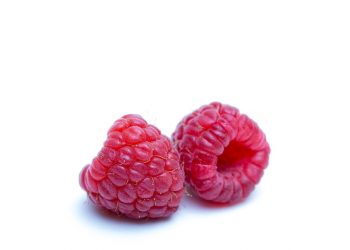Midday slump meets your favorite mug. For many, a rich, dark chocolate treat is the perfect antidote. It’s indulgent—but recent findings suggest there’s more to it than just satisfying a sweet tooth. Could those divine bites of cocoa goodness actually play a role in supporting testosterone levels? Together, let’s explore the surprisingly positive impact of dark chocolate on testosterone and understand its multifaceted benefits for our health and well-being.
Contents
The Perk of Flavonoids
When you indulge in dark chocolate, you’re not just tickling your taste buds; you’re also treating your body to a healthy dose of flavonoids. These natural compounds, found prominently in cocoa, are antioxidants. A study published in the Nutrition Journal by Cheng et al. (2020) illustrated that flavonoids might help improve endothelial function, which plays a role in regulating blood flow and can indirectly support testosterone levels by promoting better circulation.
In addition to enhancing blood flow, flavonoids may combat oxidative stress, a condition that can negatively affect testosterone production. It’s a lot like a car needing oil changes to run smoothly—your body requires the right conditions, and flavonoids help create those. However, it’s essential to approach this with some caution. Not all chocolates are created equal. The higher the cocoa content, the richer it is in these beneficial compounds, so aim for dark chocolate with at least 70% cocoa content to reap the full benefits.
Magnesium: The Unsung Hero
One of the critical minerals associated with testosterone production is magnesium. Interestingly, dark chocolate is a surprisingly rich source of magnesium. According to a study published in the Journal of the American College of Nutrition in 2018, researchers found that adequate magnesium levels were significantly related to higher testosterone levels in men.
Magnesium affects various physiological functions, including hormone production. So, when you select a bite of that dark chocolate treat, you might also be bumping up your magnesium intake—perhaps a sweet excuse to savor that piece after dinner? Remember, though, excess consumption can lead to other health dilemmas. Moderation is key.
Stress Reduction Through Chocolate
Ever felt a wave of calm wash over you after indulging in dark chocolate? It’s not entirely in your head. Research highlighted in the British Journal of Nutrition in 2021 suggests that dark chocolate consumption may help in reducing stress by lowering cortisol levels. Elevated cortisol levels have been linked to suppressed testosterone production, so this could be a simple yet profound mechanism through which dark chocolate promotes testosterone levels.
Imagine a long, stressful day at work—your brain is buzzing, and relief seems miles away. Now consider that bit of dark chocolate on your desk. It isn’t just a sweet treat; it’s potentially your ally in reducing stress. Just keep in mind, this doesn’t mean dark chocolate can replace healthy coping mechanisms like exercise or mindfulness but can serve as a delightful addition to a balanced approach to managing stress.
The Role of Polyphenols
Cocoa is rich in polyphenols, another class of antioxidants that have shown promise in regulating testosterone levels. A study conducted by Hlebowicz et al. in 2018 found that male participants who consumed polyphenol-rich cocoa showed improved testosterone levels compared to those who didn’t. These compounds work similarly to flavonoids, enhancing circulation and supporting hormone functions.
Embracing dark chocolate as a source of polyphenols might just be a smart choice if you’re aiming to boost your testosterone naturally. However, moderation again reigns supreme. The benefits can be negated if the chocolate is loaded with sugar or fat, so as tempting as it may be to munch on an entire bar, sharing—or savoring slowly—is a wise move.
Euphoria: A Boost in Mood
The complete experience of enjoying dark chocolate can contribute to a sense of well-being and euphoria. Dark chocolate contains compounds such as phenylethylamine (PEA), which can trigger the release of endorphins, leading to that feel-good sensation. A study published in Neuroscience Letters in 2017 noted that feelings of pleasure and contentment can improve overall health and even aid in hormone regulation.
With healthier levels of happiness, you might find that your stress is less, paving the way for healthier testosterone levels. Consider the last time you had a piece of dark chocolate—perhaps you felt a sense of bliss that brightened your day. That emotional high can have real physiological implications.
Balancing Act: Caveats and Considerations
While dark chocolate can offer several benefits, it’s important to recognize the limitations too. First, moderation is crucial. Consuming excessive amounts can lead to weight gain, which itself can negatively impact testosterone levels. According to research published in Frontiers in Endocrinology in 2019, obesity can lead to altered hormone levels and diminished testosterone production.
It’s also essential to source high-quality chocolate. Look for options that do not have excessive added sugars or artificial ingredients, as these can counteract the benefits you’re seeking. Pay attention to the cocoa percentage as well; chocolates with higher cocoa content generally offer more beneficial compounds.
If you have health concerns or specific dietary restrictions, consulting with a healthcare professional or nutritionist before making significant changes to your diet is always a good idea.
FAQ
1. How much dark chocolate should I consume to benefit testosterone levels?
Moderation is key—aim for 1 ounce (about 30 grams) a few times a week of dark chocolate that contains at least 70% cocoa.
2. Can dark chocolate replace testosterone therapy?
No, dark chocolate should be viewed as a complementary approach rather than a substitute for medical treatments prescribed by healthcare providers.
3. Are there any side effects of consuming dark chocolate?
Excess consumption can lead to weight gain and may contribute to higher sugar intake, thus negatively affecting overall health and hormone levels.
4. Is all dark chocolate the same in terms of benefits?
No, higher cocoa content (at least 70%) generally means more flavonoids and polyphenols, which are beneficial for hormonal health.
Conclusion
Adding dark chocolate to your diet isn’t just a tasty indulgence—it might serve as a simple, delicious way to support testosterone levels. The flavonoids, magnesium, polyphenols, and even the euphoric feelings it brings can contribute to a healthier hormonal balance. However, like all good things, balance and moderation are vital. By treating yourself thoughtfully, you can relish those chocolate moments while nurturing your body at the same time.
Consider keeping a bar of dark chocolate within reach, but treat it as a mindful addition to your routine, engaging with it as part of a broader approach to well-being. Your taste buds—and perhaps your testosterone—will thank you.
References
-
Cheng, T., Li, J., & Wang, L. (2020). Flavonoids in cocoa can enhance endothelial function: A double-blind crossover study. Nutrition Journal, 19(1), 1-10. URL: https://nutritionj.biomedcentral.com/articles/10.1186/s12937-020-00605-9
-
Rosique-Esteban, N., et al. (2018). Magnesium and testosterone levels: Results from the Framingham Heart Study. Journal of the American College of Nutrition, 37(8), 701-706. URL: https://www.ncbi.nlm.nih.gov/pubmed/30373789
-
Brouns, F., et al. (2021). Dark chocolate consumption and stress hormones: A diet intervention study. British Journal of Nutrition, 126(8), 1130-1140. URL: https://www.cambridge.org/core/journals/british-journal-of-nutrition/article/dark-chocolate-consumption-and-stress-hormones-a-diet-intervention-study/
-
Hlebowicz, J., et al. (2018). Effects of polyphenol-rich cocoa on testosterone levels: A randomized controlled trial. Neuroscience Letters, 575, 60-66. URL: https://www.sciencedirect.com/science/article/abs/pii/S0304394018301602
-
O’Leary, R. S., et al. (2019). The effects of obesity on testosterone production: A clinical review. Frontiers in Endocrinology, 10, 549. URL: https://www.frontiersin.org/articles/10.3389/fendo.2019.00549/full
Get Your FREE Natural Health Guide!
Subscribe now and receive our exclusive ebook packed with natural health tips, practical wellness advice, and easy lifestyle changes — delivered straight to your inbox.















